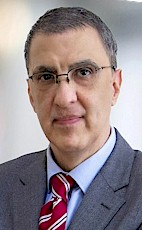Artificial intelligence and its role in the practice of hotel revenue management is front and center in the minds of most industry professionals today. Is my hotel using it? Should my hotel be using it? How would my hotel use it and what would this mean for my role? In this article, we will discuss how hotel technology is evolving, how any revenue manager looking for continued growth in the field should approach these changes, and why the best revenue management strategy will combine artificial intelligence with human intelligence. READ MORE
What do these new and still-evolving revenue management strategies look like? How is this profit-focused mindset influencing both the day-to-day details and the big-picture thinking of revenue management professionals? Cassie Bond, Regional Vice President of Revenue Management for Chesapeake Hospitality discusses the emerging practice of revenue management and the emphasis on profit over revenue that is leading to sophisticated revenue management strategies, intriguing perspectives, and exciting possibilities in the hospitality industry. She outlines how successful hotels are utilizing the information and enhanced techniques of margin prophets, not just today, but in the months and years ahead. READ MORE
Hurricanes define you and your business. They test everything from physical to mental preparedness. During times of crisis, those in the hospitality industry act as caretakers. Guests and staff are reliant on solid and strong leadership to feel safe in the face of these growing storm systems. Communicate. Stock up on necessary foods and goods. Secure your hotel. Above all, be patient and have endurance. Do anything and everything to prepare your properties, your guests, your staff and yourself for the unknown. Don't try to predict what the storm will do – it's almost impossible. Just monitor and prepare for the worst but hope for the best. READ MORE
While it is undeniable that there is a tremendous amount of data generated throughout the guest journey, for the vast majority of Hoteliers data analytics still remains an unexplored and overlooked domain. Most of the time they will find themselves trying to find the right balance between improving guest satisfaction and increasing profits. With both competition and customer requirements growing, they would generally rather focus on guest satisfaction than crunching numbers and data. The aim of this article is not to provide a review of current data analytics and technologies associated with them, but it rather focuses on what data & data analytics is all about, what makes incorporating them so important. READ MORE
In the hotel business, there are few topics hotter than revenue management. Here is a helpful guide to position your people and your properties for success in an increasingly bottom-line-driven industry that actually demands looking beyond the bottom line. With powerful and sophisticated new tools comes new techniques, new possibilities, and new ways of looking at old challenges. Doll Rice, Vice President of Revenue Optimization at Prism Hotels & Resorts references shifting ownership perspective, technology and dependence, culture clashing and today's trends to go beyond the bottom line. READ MORE


 LIBRARY ARCHIVES
LIBRARY ARCHIVES 

















